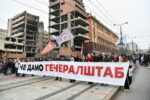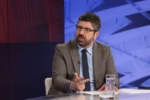Israel’s campaign against Iran, targeting its nuclear and ballistic programs, risks strategic failure, even if Prime Minister Benjamin Netanyahu manages to draw the United States into the conflict in the coming days. This warning comes from diplomats, military analysts, and security experts, as reported by The Guardian.
Despite tactical successes, such as targeted attacks on Iranian facilities and personnel, the strategic goal of destroying Iran’s nuclear program or even achieving regime change in Tehran appears unreachable.
Challenges to Military Efficacy
Experts express reservations about whether even American GBU-57 “bunker-buster” bombs can neutralize the underground Fordow nuclear plant, which is buried under dozens of meters of rock.
“The regime in Iran is more stable than it is often portrayed, and its technological progress cannot be destroyed by just one bomb,” comments Professor Toby Dodge of the London School of Economics.
Israel’s choice to provoke a direct conflict with the aim of engaging President Trump, who reportedly remains cautious, is seen by many as a risky move. Trump is said to be not yet convinced of the effectiveness of “bunker-busters” and is waiting to see if the threat of engagement will force Iran into negotiations.
Even if GBU-57 bombs are used, penetration to the estimated 90-meter depth of Fordow is not guaranteed. As former US officials Daniel Kurtzer and Steven Simon warn, “US involvement would immediately place them in Tehran’s crosshairs, with potential civilian casualties and a chain reaction.”
The possibility of a targeted attack even against Supreme Leader Ayatollah Khamenei, which Israeli sources reportedly considered but Trump rejected, has caused alarm across the wider region, with Iraq’s Shiite leader, Ayatollah Sistani, issuing a rare public warning.
Professor Andreas Krieg of King’s College London reminds us that air power alone is insufficient to achieve political goals. “You can kill the leader, but you will not destroy a networked system like Iran’s, which is based on decentralization,” he notes.
Sustainability of Operations and Diplomatic Path
Simultaneously, Israel appears to be facing issues with adequate supplies, crew fatigue, aircraft maintenance cycles, and the exhaustion of predetermined targets, making it difficult to sustain a high rate of attacks. A potential reduction in strikes would offer Tehran a narrative of resilience.
The only realistic outcome, according to some analysts, is the revival of a diplomatic path, similar to the example of Kosovo in 1999. Contacts have already begun with Iranian negotiators in Geneva, while Trump himself states there is still time for diplomacy.
Even in the event of an agreement, the Israeli strategy could expose the limits of the country’s military power and potentially strengthen a regime in Tehran with an even more hostile stance towards Israel.
As Professor Dodge characteristically comments: “If Khamenei has the composure to withdraw and America does not get involved, then Israel has put its finger in a hornet’s nest.”







